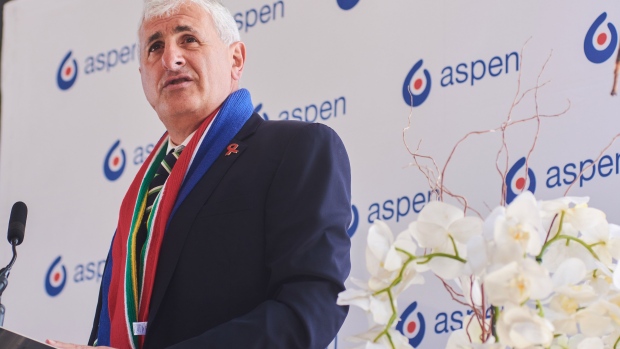Apr 22, 2024
Africa’s Biggest Drugmaker Can Help Ease Obesity Medicine Supply Crunch
, Bloomberg News

(Bloomberg) -- Africa’s biggest drugmaker could potentially help ease a growing supply crunch for the world’s hottest obesity medications.
Aspen Pharmacare Holdings Ltd., which signed a deal last year to distribute and promote Eli Lilly & Co.’s blockbuster diabetes drug Mounjaro throughout Southern Africa, has the capacity to boost availability of the most in-demand shots globally, chief executive officer Stephen Saad said in an interview with Bloomberg. This could take the form of so-called fill and finish services, where the drug is packaged for use, he said.
Drug companies like Lilly and Denmark’s Novo Nordisk A/S have been cashing in on eye-watering demand for new obesity and diabetes medication, with data showing patients are able to shed large amounts of weight. But they could have sold even more had there not been severe supply constraints.
In time, Aspen also sees an opportunity to make both glucagon-like peptide 1 diabetes drugs and the higher dose obesity medicines at its main facility in South Africa, Saad said.
Aspen is already partnering with global pharmaceutical and biotechnology companies for niche products in emerging markets. Its deal with Lilly followed a $280 million agreement in August with Viatris Inc. to buy a portfolio of products including erectile-dysfunction drug Viagra.
This isn’t happening at the expense of a drive to make more vaccines in Africa, nor will it hinder Aspen’s anesthetics line in South Africa, Saad said. The group earlier switched focus from making generic medicines to producing so-called steriles, including anesthetics, to tap a higher-value market.
“We’ve put all our bets into building these facilities globally and building the active pharmaceutical ingredient capacities as well,” he said. “If you are looking at what will really drive Aspen now, it’s to fill capacity at these sterile facilities — we are at an inflection point in our growth.”
Meeting the African Union’s target for 60% of the vaccines used on the continent to be made locally by 2040 will require accelerated production by all African manufacturers, Saad said. African countries depend on foreign suppliers for more than 90% if its shots, with the bulk of the demand for childhood vaccines.
Producing more locally would also create many thousands of jobs for African pharmacists, biologists and innovators, he said.
--With assistance from Arijit Ghosh, Rosalind Mathieson and Colleen Goko.
©2024 Bloomberg L.P.


